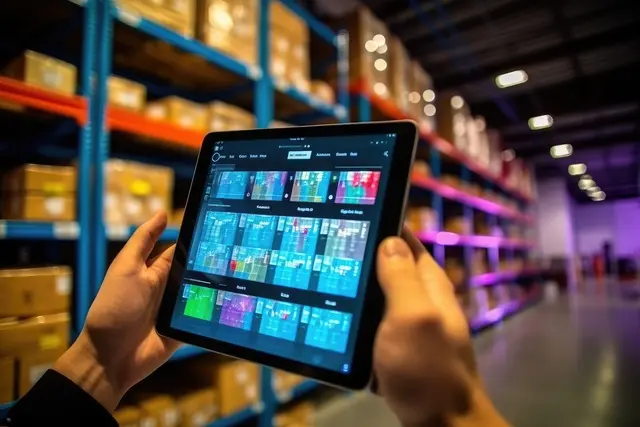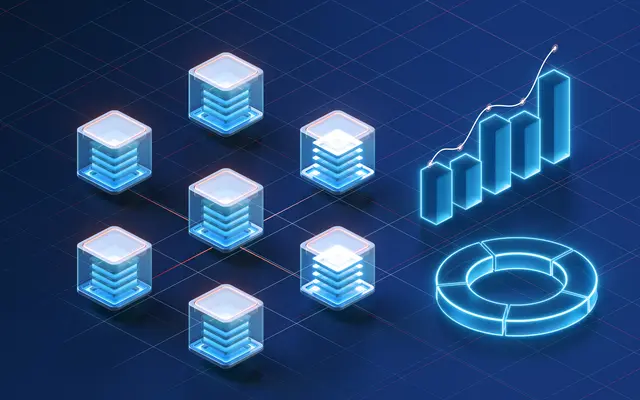Vendor Management Automation: Empowering Supply Chains with Efficiency and Accuracy
In the ever-evolving landscape of supply chain management, Vendor Management Automation has emerged as a game-changer for businesses seeking to streamline their operations and enhance efficiency. The traditional approach to vendor management, characterized by manual processes and spreadsheets, is prone to errors and inefficiencies. Vendor Management Automation, powered by Python, AI, and cloud-based solutions, offers a transformative approach that automates critical tasks, reduces human error, and empowers businesses with real-time visibility and control over their vendor relationships.
Vendor Management Automation streamlines the entire process of vendor onboarding, communication, and performance monitoring. By automating purchase order generation, transmission, and inventory updates, businesses can eliminate manual data entry and ensure timely replenishment of stock. Additionally, automated tracking of vendor performance metrics, such as on-time delivery, quality, and pricing, provides businesses with valuable insights to identify and address potential issues proactively.
The benefits of Vendor Management Automation extend beyond efficiency gains. Automated systems can process large volumes of data quickly and accurately, enabling businesses to make informed decisions based on real-time information. This data-driven approach helps businesses optimize their supply chains, reduce lead times, and improve overall profitability.
Vendor Management Automation is not just a technology solution; it’s a strategic investment that empowers businesses to gain a competitive edge in today’s dynamic supply chain environment. By embracing Vendor Management Automation, businesses can unlock the potential for increased efficiency, accuracy, and profitability, driving their supply chains to new heights of success.

Python, AI, and Cloud: The Cornerstones of Vendor Management Automation
Vendor Management Automation powered by Python, AI, and cloud-based solutions offers a transformative approach to vendor management, enabling businesses to achieve new levels of efficiency and accuracy.
Python: The Language of Unattended Bots
Python’s versatility and simplicity make it an ideal language for developing unattended bots for Vendor Management Automation. These bots can automate repetitive tasks such as purchase order generation, transmission, and inventory updates, freeing up valuable human resources for more strategic initiatives. By eliminating manual data entry and ensuring timely processing, unattended bots streamline operations and reduce the risk of errors.
Attended Bots: Empowering Human-Bot Collaboration
Vendor Management Automation can also benefit from attended bots, which assist human users in completing tasks. Built with Python, attended bots offer a high level of customization, enabling businesses to tailor their automation solutions to their specific needs. Attended bots can provide real-time guidance, automate data entry, and even handle complex decision-making processes, enhancing productivity and reducing the cognitive load on human workers.
Cloud Platforms: The Orchestrators of Automation
Cloud platforms play a crucial role in Vendor Management Automation by providing a centralized platform for managing and orchestrating automation tasks. Compared to traditional RPA/workflow tools, cloud platforms offer far more capabilities, including:
- Scalability: Cloud platforms can easily scale up or down to meet changing business demands.
- Reliability: Cloud platforms offer high levels of reliability and uptime, ensuring that automation tasks are executed seamlessly.
- Integration: Cloud platforms seamlessly integrate with a wide range of applications and systems, enabling end-to-end automation of vendor management processes.
AI: Enhancing Accuracy and Handling Edge Cases
AI plays a vital role in Vendor Management Automation by improving accuracy and handling edge cases. AI techniques such as image recognition, natural language processing (NLP), and generative AI (Gen AI) can be incorporated into automation solutions to:
- Automate data extraction: AI can extract data from invoices, purchase orders, and other documents, eliminating the need for manual data entry and reducing errors.
- Identify anomalies: AI can analyze vendor performance data to identify anomalies and potential issues, enabling businesses to take proactive action.
- Handle exceptions: Gen AI can generate natural language responses to vendor inquiries, handle complex negotiations, and resolve issues that fall outside of predefined rules.
By leveraging the power of Python, AI, and cloud-based solutions, businesses can transform their vendor management processes, achieving unprecedented levels of efficiency, accuracy, and profitability.

Building the Vendor Management Automation with Python and Cloud
The development of a Vendor Management Automation solution using Python and cloud involves several key sub-processes:
1. Process Analysis
The first step is to analyze the existing vendor management processes to identify opportunities for automation. This involves understanding the current workflows, data flows, and pain points.
2. Automation Design
Once the processes have been analyzed, the automation solution can be designed. This involves defining the scope of automation, identifying the tasks to be automated, and selecting the appropriate tools and technologies.
3. Data Integration
Vendor Management Automation requires integration with various data sources, such as inventory management systems, ERP systems, and vendor portals. This integration ensures that the automation solution has access to the necessary data to perform its tasks.
4. Automation Development
Using Python and cloud-based services, the automation solution can be developed. Python scripts can be created to automate tasks such as purchase order generation, data extraction, and vendor performance monitoring. Cloud-based services can be used for tasks such as data storage, workflow orchestration, and event-driven processing.
5. Deployment and Monitoring
Once the automation solution has been developed, it can be deployed and monitored. This involves configuring the automation solution, integrating it with the production environment, and establishing monitoring mechanisms to ensure that the solution is running smoothly.
Data Security and Compliance
Data security and compliance are critical considerations in Vendor Management Automation. The solution must be designed to protect sensitive data, such as purchase orders, vendor contracts, and performance metrics. Additionally, the solution must comply with relevant industry regulations and standards.
Advantages of Python over No-Code RPA/Workflow Tools
While no-code RPA/workflow tools offer a quick and easy way to automate tasks, they have several limitations compared to Python:
- Flexibility: Python is a versatile language that allows for a wide range of customization and integration options.
- Scalability: Python scripts can be easily scaled to handle large volumes of data and complex processes.
- Cost-effectiveness: Python is an open-source language, which eliminates licensing costs.
Algorythum’s Approach to Vendor Management Automation
Algorythum takes a different approach to Vendor Management Automation by focusing on building custom solutions using Python and cloud-based services. This approach allows us to deliver solutions that are tailored to the specific needs of our clients, ensuring optimal performance and scalability.
By leveraging the power of Python, AI, and cloud-based solutions, Algorythum empowers businesses to transform their vendor management processes, achieving new levels of efficiency, accuracy, and profitability.

The Future of Vendor Management Automation
The future of Vendor Management Automation is bright, with numerous possibilities for extending and enhancing the solution using other future technologies.
Integration with AI and Machine Learning
AI and machine learning can be leveraged to further improve the accuracy and efficiency of Vendor Management Automation. For example, machine learning algorithms can be used to identify patterns in vendor performance data, predict future trends, and make recommendations for improvement.
Blockchain for Secure and Transparent Data Sharing
Blockchain technology can be integrated into Vendor Management Automation to create a secure and transparent platform for sharing data between vendors and businesses. This would eliminate the need for manual data reconciliation and improve trust between parties.
IoT for Real-Time Data Collection
IoT devices can be used to collect real-time data on vendor performance, such as delivery times and product quality. This data can be integrated into the Vendor Management Automation solution to provide businesses with a comprehensive view of vendor performance.
Subscribe to Algorythum for the Latest in Automation
To stay up-to-date on the latest trends and developments in automation, subscribe to Algorythum. We regularly publish articles, case studies, and webinars on a variety of automation topics, including Vendor Management Automation.
Contact Us for a Free Feasibility and Cost Estimate
If you are considering implementing a Vendor Management Automation solution, contact the Algorythum team today. We offer a free feasibility and cost estimate to help you determine the best solution for your business.
Algorythum is committed to providing our clients with the best possible automation solutions. By leveraging the power of Python, AI, cloud-based services, and other future technologies, we can help businesses achieve new levels of efficiency, accuracy, and profitability.

Algorythum – Your Partner in Automations and Beyond
At Algorythum, we specialize in crafting custom RPA solutions with Python, specifically tailored to your industry. We break free from the limitations of off-the-shelf tools, offering:
- A team of Automation & DevSecOps Experts: Deeply experienced in building scalable and efficient automation solutions for various businesses in all industries.
- Reduced Automation Maintenance Costs: Our code is clear, maintainable, and minimizes future upkeep expenses (up to 90% reduction compared to platforms).
- Future-Proof Solutions: You own the code, ensuring flexibility and adaptability as your processes and regulations evolve.









